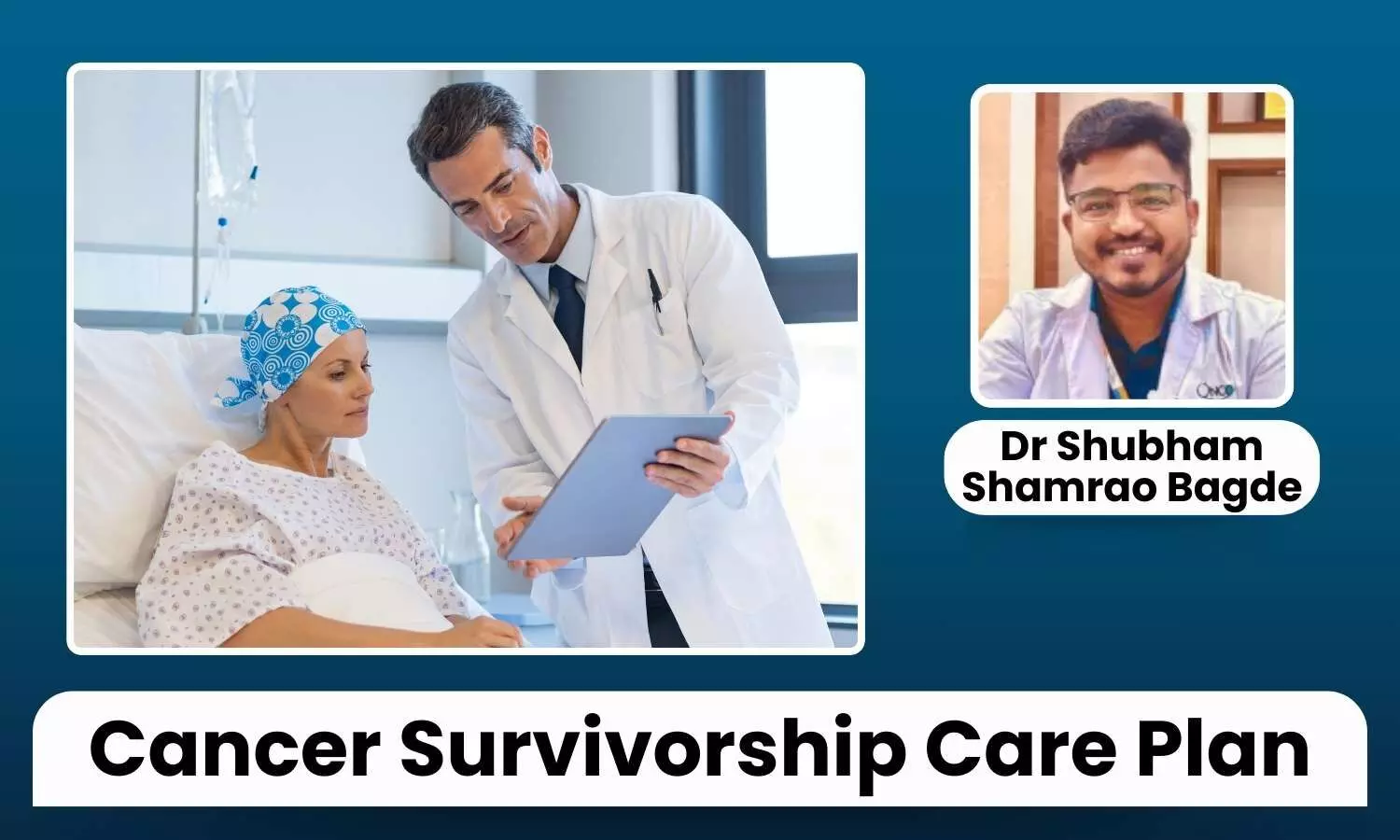Creating a Survivorship Care Plan: What Cancer Patients Need to Know? - Dr Shubham Shamrao Bagde

Creating a Survivorship Care Plan (SCP) is a crucial step for cancer patients who have just completed their treatment and are on a path to recovery after cancer.
This plan serves as a personalized roadmap, guiding individuals through their unique health needs and outlining follow-up care strategies. This article helps you to understand more about survivorship care plans for cancer patients.
A Survivorship Care Plan is not just a document, but a rule book for reclaiming life after cancer. It empowers survivors with knowledge, guidance, and hope for a healthier future.
A Survivorship Care Plan is a comprehensive, personalized document that is created for cancer survivors after they complete their primary treatment. It serves as a bridge between active cancer care and long-term health management. The plan involves an overall assessment of potential late effects from treatments, such as fatigue or risk of recurrence.
Recognizing these possibilities empowers survivors to take proactive measures, facilitating healthier lifestyle choices and early detection strategies. Moreover, an effective SCP encourages open communication among experts, patients, and caregivers.
It not only details medical appointments and screenings but also emphasizes the importance of mental health support during this critical phase.
Engaging with counselling or support groups can provide emotional support and build connections with others who share similar experiences. Ultimately, a well-designed Survivorship Care Plan helps patients thrive post-treatment and improve their quality of life.
SCP for cancer patients includes a detailed summary of the patient's cancer diagnosis and treatments received so that the patient knows about it and is well-informed of his/her condition. The expert will also discuss the long-term side effects of treatments and how to manage them with the help of an appropriate line of treatment.
The expert will discuss the follow-up care, including the schedule for future tests and screenings to monitor the patient’s well-being and ensure his/her peace of mind. The expert will keep an eye on the effects of treatment and symptoms such as fatigue, pain, and vomiting.
The expert will also advise on nutrition, exercise, smoking cessation, alcohol moderation, weight management, and the proper vaccination schedule to be followed without neglecting the health. You will be asked to eat a nutritious diet and avoid processed, sugary, and canned food.
Moreover, physical therapists, occupational therapists, and speech-language experts will help you regain physical function, and manage pain. The experts will also suggest counselling in case of anxiety, stress, or depression.
You can also join a support group and share experiences with other cancer warriors who are facing a similar situation and learn from their experiences. It is essential to have open communication with the expert, discuss your concerns, and take measures to be able to do your daily routine with ease after fighting cancer.
Your survivorship plan will change as you recover and will be updated from time to time to support your well-being. Hence, follow the instructions given by the doctor and overcome cancer.


